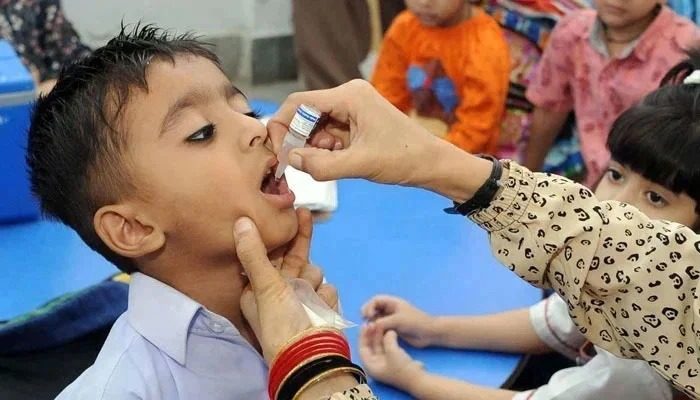As continuously mentioning, the performance of the EOC Sindh has always been questionable, as it appears to prioritize self-promotion over the national agenda

By our correspondent
DIAMER, GILGIT-BALTISTAN: A recent laboratory analysis has confirmed a case of wild poliovirus type 1 (WPV1) in District Diamer, Gilgit-Baltistan. Genetic sequencing identified the virus as belonging to Cluster YB3A4A, showing a 99.45 percent genetic match to a poliovirus isolated from an environmental sample collected on 9 December 2024 in Karachi Central, Liaquatabad.
After a seven-year hiatus, Gilgit-Baltistan has reported its first case of polio, with health authorities confirming the presence of the virus in a two-year-old child from the remote village of Gabar in Tangir district. The confirmation has prompted the regional health department to launch emergency response measures aimed at preventing further spread of the disease.
The virus type is wild poliovirus type 1, clustered as YB3A4A, with a close genetic match to the Karachi Central Liaquatabad strain. The epidemiological implications are significant, indicating ongoing virus transmission in Karachi and the risk of reintroducing poliovirus into previously polio-free districts in Gilgit-Baltistan. Diamer is considered a high-risk district due to pockets of low routine immunization coverage combined with frequent human mobility.
As continuously mentioning, the performance of the EOC Sindh has always been questionable, as it appears to prioritize self-promotion over the national agenda. However, this cannot be challenged openly because, according to sources, the incumbent EOC Sindh Coordinator has strong political affiliations. It is pertinent to mention that before he assumed office, Sindh was on the verge of being declared polio-free due to the effective leadership of the former EOC Sindh Coordinator, Fayaz Hussain Abbasi.
Supplementary immunization activities should be swiftly launched, targeting not only Diamer but also high-risk pockets in adjoining districts. Special attention must be paid to mobile, nomadic, and transit populations along the Chilas–Babusar and Chilas–Mansehra routes. Vaccination efforts must be strengthened at key transit points such as Babusar Top, Thor Nullah, Gonar Farm, and the Chilas bus stand, with transit vaccination teams working to immunize travelers.



